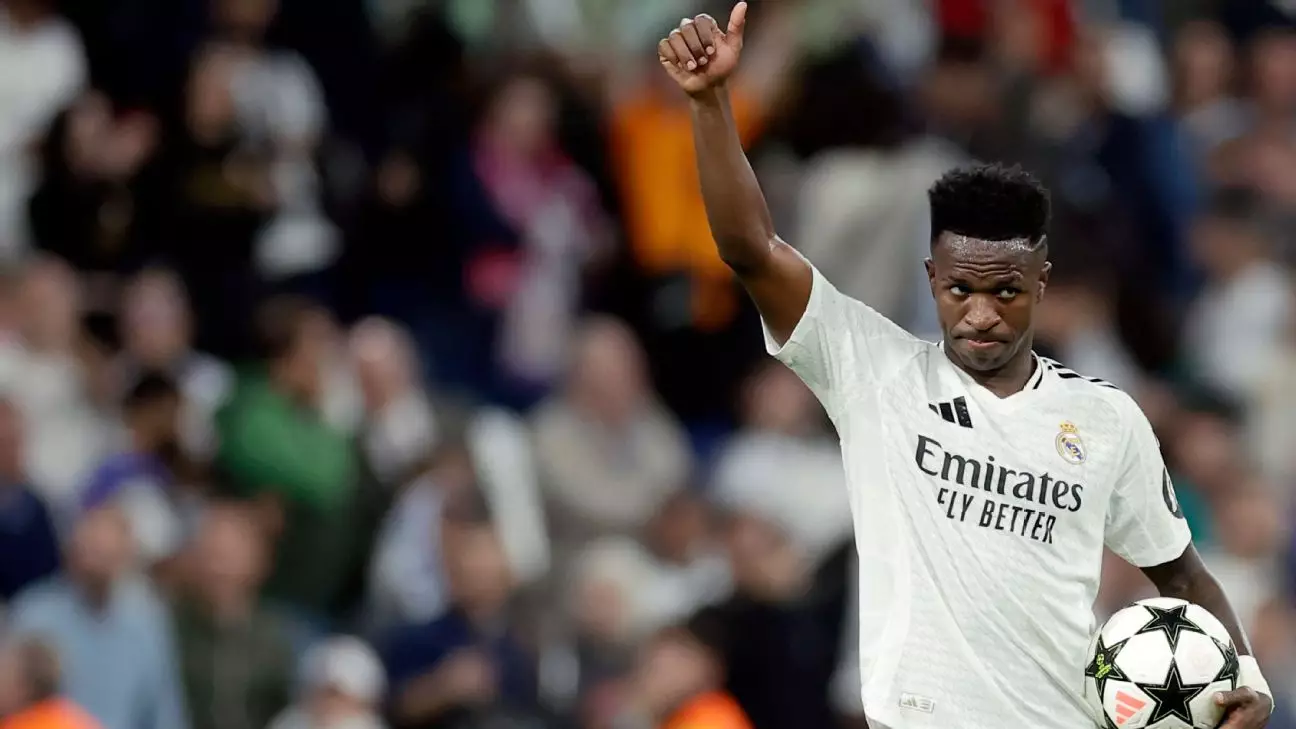Real Madrid has long been the face of success in European football, holding an unprecedented 15 UEFA Champions League titles. The club’s remarkable history and fanatical support create an atmosphere that is palpable in every match, a combination of passion and high expectations. Yet, recent performances have been met with scrutiny, raising questions about the team’s cohesion. Their latest match against Borussia Dortmund highlighted this duality: a squad rich in talent yet often struggling to function as a cohesive unit.
On what could be termed ‘a night of reckoning,’ the Santiago Bernabeu saw both the highs and lows of this Real Madrid incarnation. Despite a shaky first half where they found themselves down 2-0, the home side rallied to produce a stunning second-half performance, rendering their initial struggles almost forgettable by the final whistle.
The first 45 minutes of the match presented a worrying narrative for Real Madrid. The defense looked fragile, the midfield struggled for control, and the attack, seemingly nonexistent. As fans from Dortmund celebrated two well-worked goals, the stifled murmurs of discontent grew louder among the home crowd. Donyell Malen’s goal followed by Jamie Bynoe-Gittens tapping in a second left Madrid in a precarious position, one the team would have to navigate carefully. Much of the intrigue during this segment lay not in their opponents’ brilliance but in Madrid’s alarming failures.
Despite the mounting pressure, there were brief moments of hope — Rodrygo and Jude Bellingham came tantalizingly close to reinvigorating the Madrid effort, striking the woodwork in quick succession. However, Courtois was never truly tested by Dortmund for the remainder of the half, suggesting an unsettlingly disjointed performance from Madrid that had the Bernabeu crowd whistling in disapproval as the halftime whistle blew.
With the second half underway, a dramatic transformation seemed not just necessary but inevitable. Real Madrid emerged with a newfound intensity, led by one of their brilliant stars: Vinícius Júnior. The Brazilian’s influence was immediate, epitomizing Madrid’s relentless pursuit of the game. Antonio Rüdiger’s header from a Kylian Mbappé cross ignited the crowd, but the true resurgence came minutes later, as Vinícius leveled the score with a well-timed goal after a nervy VAR check.
The Nakba influence of this comeback was unmistakable. Suddenly, Madrid was a tempest, ready to unleash the storm previously buried under doubts and hesitation. As they pushed for a third goal, the confidence in the Bernabeu grew, echoing the raucous chants of hopeful fans. The introduction of Lucas Vázquez also rejuvenated the team’s attacking options, culminating in an exquisite move that saw him score to make it 3-2.
Vinícius capped off the night with two late goals, displaying staggering skills and determination that showcased why he is considered one of the most exciting talents in football today. This performance not only secured the win but effectively catapulted him into the conversation for accolades, as observers debated whether he’s on track for a Ballon d’Or nomination.
As Madrid prepares for an upcoming match with arch-rivals Barcelona, questions linger regarding their vulnerabilities. While the second-half performance solidified hopes for success in this concrete season, it also highlighted that inconsistencies could thwart their ambitions in European competition. At times, they carried a sense of chaos, exemplifying a team that relies heavily on individual brilliance over collective organization.
The Champions League’s new format lessens the exclusivity of early eliminations, providing a temporary buffer for teams like Madrid, who might rely too much on star power rather than teamwork. Their ability to scrape through matches cannot become a habit if they aspire to reclaim dominance in Europe.
Nevertheless, nights like these serve as a reminder of Real Madrid’s storied resilience. Their strength lies not just in their current squad or tactical maneuvers but in their unyielding desire to overcome adversity. With Vinícius fitting seamlessly into the fabric of team dynamics, the potential for greatness remains tangible. If the squad can channel this energy into more consistent performances, they might very well find themselves favorites not just in upcoming matches, but in the grand tapestry of football history once again.

Leave a Reply